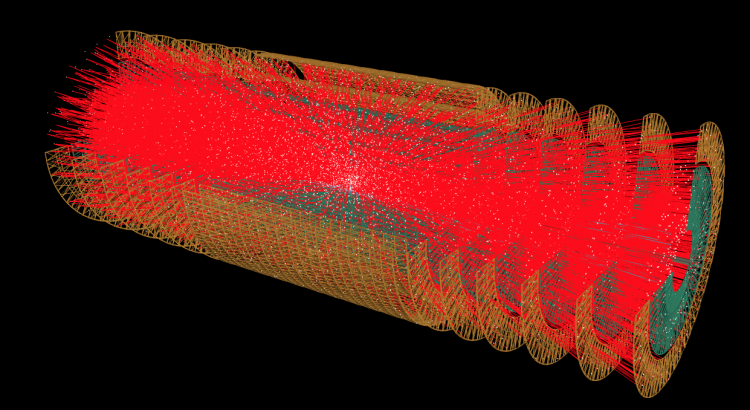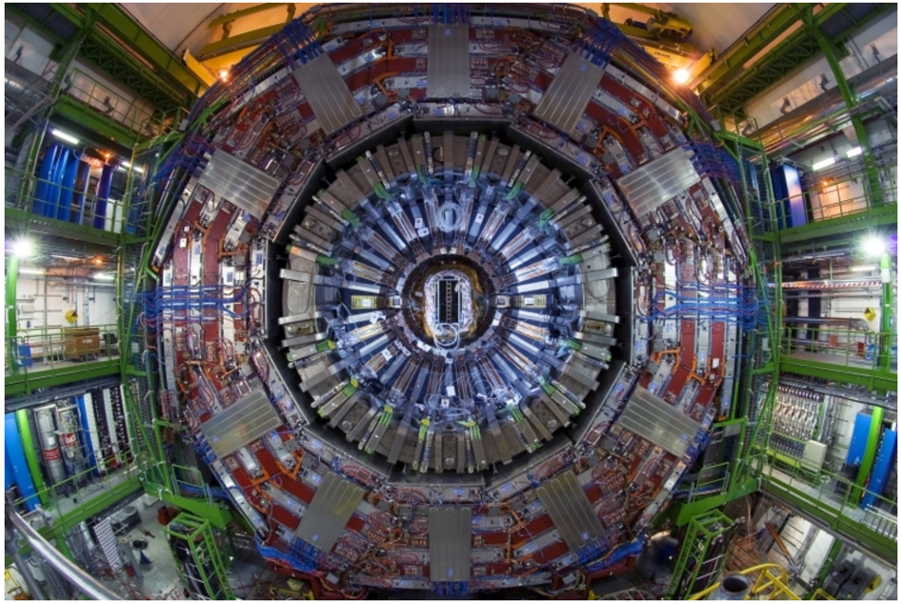
Can machine learning assist high-energy physics in discovering and characterising new particles?
Physicists from the ATLAS, CMS and LHCb collaborations have just launched the TrackML challenge– your chance to develop new machine learning solutions for the next generation of particles detectors.
The Large Hadron Collider (LHC) produces hundreds of millions of collisions every second, generating tens of petabytes of data a year. Handling this flood of data is a major challenge for the physicists, who have developed tools to process and filter the events online within a fraction of a second and select the most promising collision events.
Managing the amount of data will become even more challenging in the near future: a major upgrade foreseen for 2026, the planned start of the High-Luminosity LHC, will increase the collision rate up to a factor of five. Innovative new software solutions will be needed to promptly reconstruct the tracks produced by these collisions with the available computing resources.
To help address this issue, a team of machine learning experts and LHC physicists has partnered with Kaggle to probe the question: can machine learning assist high-energy physics in discovering and characterising new particles?
Specifically, in this competition, you’re challenged to build an algorithm that quickly and efficiently reconstructs particle tracks from 3D points left in the silicon detectors. The challenge consists of two phases:
- The “Accuracy Phase” is now running on Kaggle from May to July 2018. Here the focus is on the highest score, irrespective of the evaluation time. This phase is an official IEEE WCCI competition (Rio de Janeiro, July 2018).
- The “Throughput Phase” will run on Codalab from July to October 2018. Participants will submit their software which is evaluated by the platform. Incentive is on the throughput (or speed) of the evaluation while reaching a good score. This phase is an official NIPS competition (Montreal, December 2018).
Sign up for the TrackML challenge today! The top three scorers will receive cash prizes. Selected winners may be awarded a top-notch NVIDIA v100 GPU or get the chance to visit CERN or attend the 2018 Conference on Neural Information Processing Systems in Montreal (Canada).
For more information and the participation conditions, visit the Kaggle challenge website and the official TrackML twitter account
- Log in to post comments

